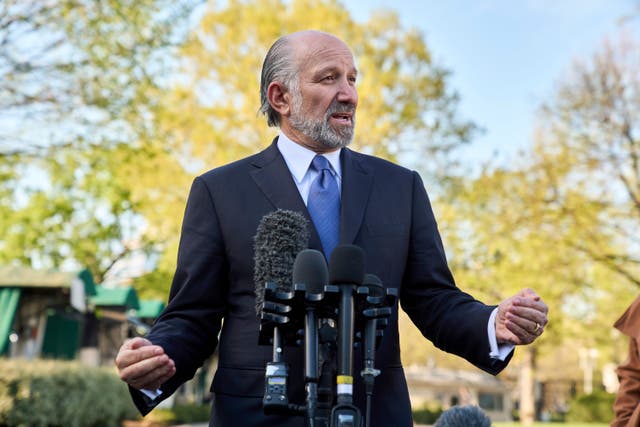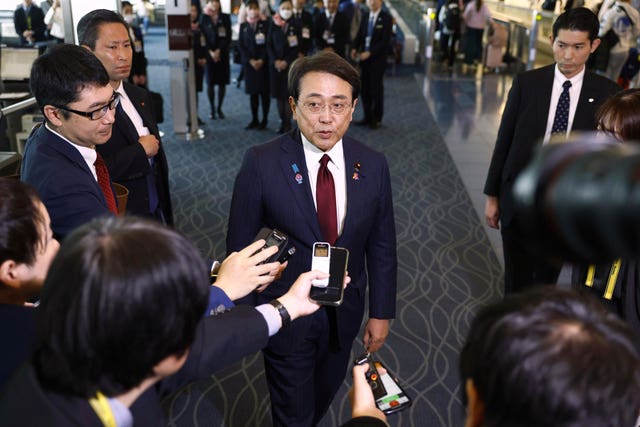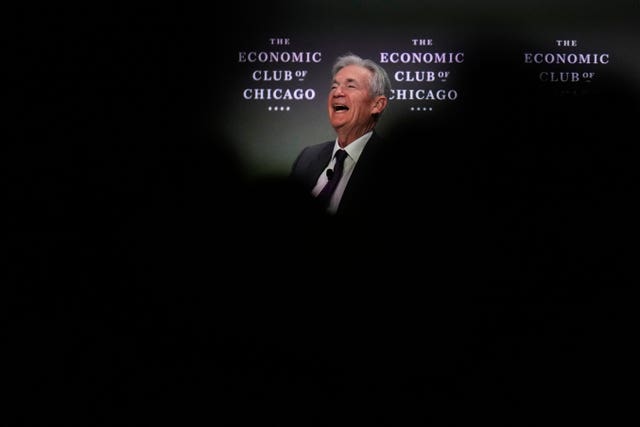Trump joins Japanese tariff talks as America aims to lock in trade deal
The US leader attended the meeting alongside fiscal leaders from both nations.

President Donald Trump inserted himself directly into trade talks with Japanese officials on Wednesday.
The president attended the meeting alongside Treasury Secretary Scott Bessent and Commerce Secretary Howard Lutnick, top economic advisers with a central role in his trade and tariff policies.
The move signals the fragile position now faced by the US after the new trade rules caused stock markets to plunge around the world.
Since the US imposed trade rules on a slew of foreign nations, America has been forced to reassure its public that the government was working to lock in deals with world leaders around the globe.
“Hopefully something can be worked out which is good (GREAT!) for Japan and the USA!” Mr Trump wrote in a social media post ahead of the meeting.

Afterwards, he posted: “A Great Honor to have just met with the Japanese Delegation on Trade. Big Progress!”
The president’s choice to get directly involved in negotiations points to his desire to quickly finalise deals with other nations such as China, with the Asian superpower pursuing its own set of agreements.
It is an open test of Mr Trump’s reputation as a dealmaker as countries around the world seek to limit potential damage unleashed by his import taxes.
The sweeping tariffs, announced on April 2 by Mr Trump, triggered fears of a global recession, which saw the US president implement a partial 90-day hold on import taxes.
He also increased his already steep tariffs against China to as much as 145%.
The pause temporarily spared Japan from 24% across-the-board tariffs, but there continues to be a 10% baseline tariff and a 25% tax on imported cars, auto parts, steel and aluminium exports.
With Japan charging an average tax rate of 1.9% on other countries’ goods and having a long-standing alliance with the US, the Wednesday talks are a crucial indicator of whether the Trump administration can achieve a meaningful deal that reassures the markets, American voters and foreign allies.
China is trying to capitalise on the turmoil around Trump’s announcements, with President Xi Jinping touring nations of Southeast Asia and promoting his country as a more reliable trade partner.
Japan is among the first countries to start open negotiations with the US.
Mr Trump and other administration officials have said the phones have been “ringing off the hook” with dozens of countries calling, eager to strike deals with a president who views himself as a master negotiator to avoid tariffs when the 90-day pause ends.

Israel and Vietnam have offered to zero out their tariff rates, but the president has been noncommittal as to whether that would be sufficient.
On Thursday, he is scheduled to meet Italian Prime Minister Giorgia Meloni, who will likely be carrying messages on behalf of the European Union about how to resolve the tariffs placed on the 27-state group.
The president may also be feeling increased domestic pressures to settle any tariffs, with voters saying they returned him to the White House in order to improve the economy, not to worsen it.
California Governor Gavin Newsom filed a lawsuit on Wednesday, which argues Mr Trump overstepped his authority by declaring an economic emergency to levy his tariffs, with the Democrat saying in a statement that the tariffs have caused economic chaos.
Federal Reserve chairman Jerome Powell said on Wednesday that Mr Trump’s tariff policies would hurt the US economy.
Mr Powell’s move signals a direct warning to the White House, which is trying to pitch import taxes to the American public as a long-term positive for the country.

“The level of tariff increases announced so far is significantly larger than anticipated, and the same is likely to be true of the economic effects, which will include higher inflation and slower growth,” Mr Powell said at the Economic Club of Chicago.
Japan, like many other nations trying to minimise the possible economic fallout from Trump’s tariffs, has been scrambling to respond. It has set up a special task force to assess the impact of the tariffs and offer loans to anxious companies.
Although Prime Minister Shigeru Ishiba has been working hard to coax exemptions out of Mr Trump, the government has said little officially on what concessions it might offer during these talks.





